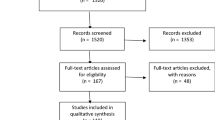Abstract
Objective
The authors sought to determine whether emotional intelligence, as measured by the BarOn Emotional Quotient Inventory (EQ-i), is associated with selection to administrative chief resident.
Method
Authors invited senior-year residents at the University of Texas Health Science Center at Houston to participate in an observational cross-sectional study using the BarOn EQ-i. In October 2009 they sent an invitation e-mail to 66 senior residents, with a reminder e-mail 1 month later. The study was designed to detect a 15-point difference in EQ-i scores with 80% power.
Results
Of the 66 invited residents, 69.6% participated in the study. Average total EQ-I score was 104.9. Among senior-year residents, there were no statistically significant differences in EQ-i scores between administrative chief residents (at 109) and non-administrative chief residents (at 103.2).
Conclusion
Administrative chief residents do not demonstrate higher Emotional Intelligence, as measured by the EQ-i, than other senior-year residents.
Similar content being viewed by others
References
Salovey P, Mayer J: Emotional intelligence. Imagin Cogn Pers 1990; 9:185–211
Bar-On R: BarOn Emotional Quotient Inventory Technical Manual. North Tonawanda, NY, Multi-Health Systems, 2002
Freshman B, Rubino L: Emotional intelligence: a core competency for healthcare administrators. Health Care Manag (Frederick) 2002; 20:1–9
Lewis N, Rees C, Hudson N: Helping medical students identify their emotional intelligence. Med Educ 2004; 38:563
Vitello-Cicciu JM: Innovative leadership through emotional intelligence. Nurs Manage 2003; 34:28–32, Quiz 32–33
Jensen AR, Wright AS, Lance AR, et al: The emotional intelligence of surgical residents: a descriptive study. Am J Surg 2008; 195:5–10
Talarico JF, Metro DG, Patel RM, et al: Emotional intelligence and its correlation to performance as a resident: a preliminary study. J Clin Anesth 2008; 20:84–89
Lewis NJ, Rees CE, Hudson JN, et al: Emotional intelligence medical education: measuring the unmeasurable? Adv Health Sci Educ Theory Pract 2005; 10:339–355
Borges NJ, Stratton TD, Wagner PJ, et al: Emotional intelligence and medical specialty choice: findings from three empirical studies. Med Educ 2009; 43:565–572
Day AL, Carrol SA: Using an ability-based measure of emotional intelligence to predict individual performance, group performance and group citizenship behavior. Pers Individ Dif 2004; 36:1443–1458
Author information
Authors and Affiliations
Corresponding author
Additional information
The authors thank the Larry C. Gilstrap, M.D., Center for Perinatal Research and Women’s Health for funding the study.
Rights and permissions
About this article
Cite this article
Kilpatrick, C.C., Doyle, P.D., Reichman, E.F. et al. Emotional Intelligence and Selection to Administrative Chief Residency. Acad Psychiatry 36, 388–390 (2012). https://doi.org/10.1176/appi.ap.10100151
Received:
Revised:
Accepted:
Published:
Issue Date:
DOI: https://doi.org/10.1176/appi.ap.10100151



